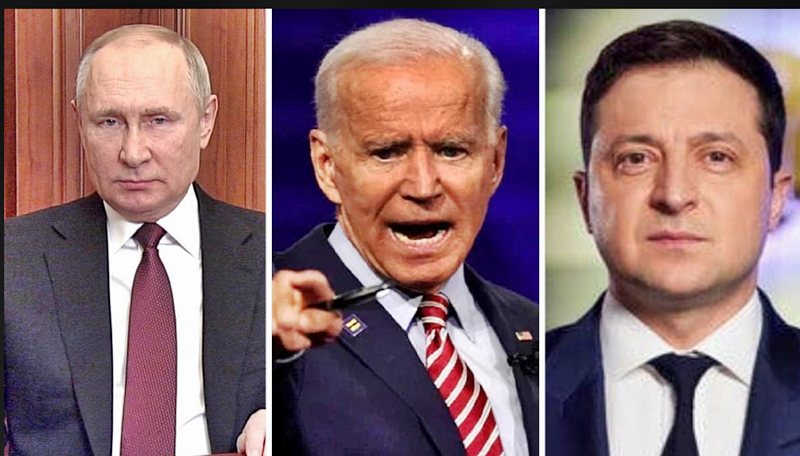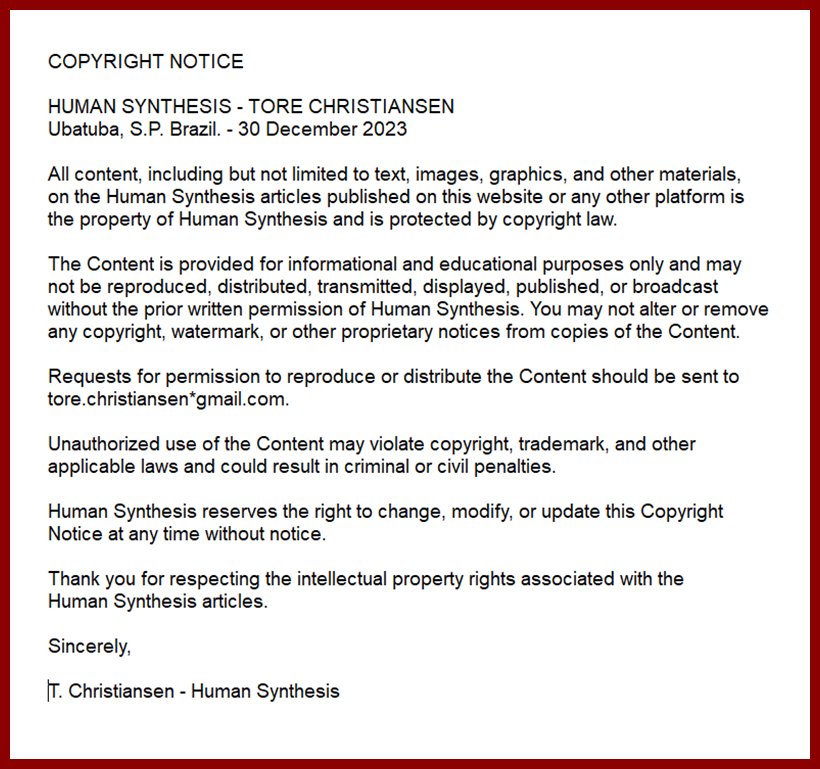US INTERFERENCE IN UKRAINE ELECTIONS PROVOKED RUSSIA INTO ACTION IN 2009

Rossland - Copied: 12 March 2024
By Glenn Diesen, professor at the University of Southeast Norway.
Correcting the lies that Russia's invasion was unprovoked and solely motivated by annexing territory. The misconception was instead that Moscow could not be negotiated with and that NATO's role in the war was solely to assist Ukraine in defending itself.
With such a narrative, we are convinced that there is only a military solution and that Norway therefore had to abandon its tradition of not sending Norwegian weapons to war zones. But if NATO has provoked the war and sabotaged all attempts at peace, then the supply of weapons must be interpreted as a cynical use of Ukrainians in a cold war against Russia. Acknowledging NATO's involvement in this war is necessary to initiate negotiations and should not be equated with supporting the Russian invasion of Ukraine.
In 1990, we established a new inclusive Europe with the "Charter of Paris for a New Europe". The agreement was based on "indivisible security" and "sovereign equality" in Europe without dividing lines. Four years later, we developed a common security institution with Russia, the Organization for Security and Cooperation in Europe (OSCE), based on the same principles. The decision to expand NATO resulted in the cancellation of the principles of these agreements. Instead of "indivisible security," NATO increased its security at the expense of Russian security.
Instead of a Europe without dividing lines, we are fighting a new cold war over where the new dividing lines should be drawn. Ukraine, Georgia, Belarus, and Moldova are thus the new front lines. In 1994, even President Clinton warned that NATO expansion could destabilize Europe, as "drawing a new line between east and west could create a self-fulfilling prophecy of future confrontation."
When Clinton reconsidered, his Defense Secretary William Perry considered resigning in protest. Perry claims that those pushing for NATO expansion recognized that this would destroy peace with Russia but didn't care because Russia was weak, and the thought was, "Who cares what they think."Jack Matlock, the US ambassador to the Soviet Union who participated in negotiations to end the Cold War, condemned NATO expansionism as a betrayal of Russia that destroyed the basis for lasting peace.
George Kennan, the architect of containment policy against the Soviet Union, foresaw that NATO expansionism was a provocation that would start a new cold war and that if Russia responded to provocations, NATO would wrongly blame Russia. Getting Ukraine on our side of the new dividing lines in Europe was a recipe for war.
William Burns, the US ambassador to Russia and now CIA director, warned in 2008 that bringing Ukraine into NATO could trigger a civil war, and Russia would likely intervene on behalf of Eastern Ukraine, something Moscow did not want to do. Germany agreed with this analysis. "Getting Ukraine on our side was a recipe for war."But NATO continued to pull Ukrainians toward a membership they did not want.
In 2011, NATO published a report arguing that the biggest challenge in the relationship with Ukraine was that NATO membership was highly unpopular, with some polls showing less than 20 percent support among the population. In 2014, we supported a "democratic revolution" that did not have majority support among Ukrainians and went against the constitution. Leaked phone calls revealed that the USA had handpicked the new administration weeks before they helped remove the democratically elected president from power.
The civil war predictably began after the coup, and Russia intervened. The conflict seemed to be resolved in February 2015 with the Minsk Agreement to which all parties, including the West, committed. Since then, we have learned that the USA and the UK sabotaged the peace agreement for seven years, and both Germany and France now claim that the agreement was only made to buy time to arm "their" Ukraine.
In 2019, Zelensky was elected with 73 percent of the votes on a peace platform, promising to implement the Minsk Agreement to achieve peace with Donbas and Russia. But he made a U-turn after nationalists funded and trained by the USA threatened his life. In 2021, Moscow tried to negotiate with NATO to stop the increased American presence along their borders, including NATO's modernization of two Ukrainian ports for use by American warships. The former head of Russia analysis in the CIA argued in December 2021 that Russia could invade because the "risk of inaction" had become too great.
Russia invaded in February 2022 to implement a new status quo in Ukraine after eight years of war in Donbas and NATO's gradual buildup of the Ukrainian military. Three days into the invasion, negotiations had already begun. Israeli Prime Minister Bennett led the negotiations and claimed that both Russia and Ukraine wanted an agreement for Ukraine to stay out of NATO in exchange for Russia withdrawing its forces.
However, according to Bennett, the USA and the UK sabotaged the peace agreement because they wanted to use the Ukrainian army they had built against Russia. Turkey also tried to negotiate peace, and again, they were close to an agreement on Ukrainian neutrality in exchange for Russian withdrawal, but according to Turkey and the German general Harald Kujat, the peace agreement was again sabotaged by the USA and the UK, who wanted to wage war against Russia with Ukrainians.
The strategy of provoking increased Russian involvement in Ukraine was one of the recommendations in a RAND report in 2019, commissioned by the US military, on how to weaken Russia. The US Secretary of Defense declared that the goal of the war was to weaken Russia. Senator Mitch McConnell confirmed that "cold, hard, practical American interests" are the reason to weaken and prevail over Russia. Senator Lindsay Graham explained that the USA has a good deal because the USA sends weapons and Zelensky promises that "they will fight to the last person."
If this was an unprovoked and opportunistic invasion, then arms shipments could make Russia withdraw as the costs outweigh the benefits. But if Russia considers NATO to be an existential threat, then arms shipments will only escalate towards nuclear war. Instead of using Ukraine as a pawn in the new Cold War, we should support negotiations that provide the security guarantees Moscow demanded a year ago, based on existing agreements from the 1990s that we canceled.
